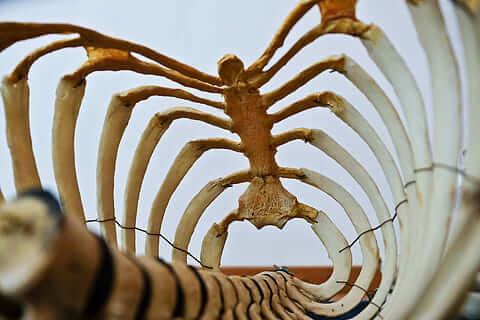
A slipped disc is a condition that occurs in your spinal disc. In the slipped disc, the soft centre of your spinal disc is pushed outside the exterior wall of the spine. It is often difficult to detect the symptoms of the slipped disc at the early stage as there are plenty of signs that your body shows, which looks similar to regular backaches. It is essential to understand that not every slipped disc case requires therapy and medications; some cases can be resolved with exercises and change in lifestyle.
Slipped disc can take a severe turn if left unattended, so you must never neglect even the slight changes in your spine health. The untreated slipped disc can lead to nervous system damage. Read more to learn about the best slip disc treatment and tips for prevention.
You need to be careful with your weight lifting techniques. Do not try to bend your back or waist much as it can directly pressurize your disc. When you are lifting heavy objects, bend your knees, and keep your back straight. Use the strong leg muscles to lift the load; rightly distribute the weight and don’t pressure any particular leg. However, it is recommended to avoid heavy weight lifting if you have slip disc.
Your overweight issue can worsen your slip disc condition. So, your first priority after being diagnosed with slip disc is to maintain a healthy weight. Both being underweight and overweight are not suitable for slip disc. Consult your orthopedic/spine doctor to learn more about the adequate weight balance you need to minimize the pressure on the lower back.
Another important thing that you cannot ignore is maintaining a good posture while sitting, standing and sleeping. For instance, always stand straight with your shoulders stretched back and abdomen aligned with your back. Keep your feet flat on the floor when you sit. Try to sleep on a firm mattress that helps you put your back at ease. Ask your physiotherapist to suggest some good postures for sitting, standing and sleeping.
Read More: Back Pain and Office Postures
If you love wearing high heels, then you must probably say goodbye to them after developing a slipped disc. High heels and elevated shoes are not suitable for your lower back. Walking on high heels for a longer period will impact your back severely. Wear shoes and sandals with a flat and platform height that will go well with your slip disc issue. Don’t let the fashion worsen your slip disc condition.
If your spine is damaged, you cannot escape the condition of slip disc, all you can do is adopt some of the best treatment and prevention methods to combat the situation and live a stress-free life. Read more about spinal surgery and find the right slip disc treatment and prevention methods that work best for you.
You can also abide by the above-mentioned treatment and prevention tips that can help with your slip disc issue.
Spine conditions can be crippling. Some spinal conditions can be treated by medications, exercise, and lifestyle changes. The severe conditions, however, require surgical methods. The traditional open surgery accounts for more complications, increased hospital stay, post-surgical pain and pronounced discomfort. This is...
Sciatica is a pain that radiates along the radiate nerve and is experienced in the back, around the hips, and outer or the backside of the leg. This is usually caused due to compression in the sciatic nerve which runs down either...
TYPES OF SPINE SURGERIES Vertebroplasty and Kyphoplasty: These are used to treat compression fractures of the vertebrae caused by osteoporosis. Spinal Laminectomy/Spinal Decompression: This is done when spinal stenosis brings about a narrowing of the spinal canal which results in pain, numbness,...